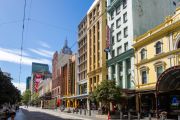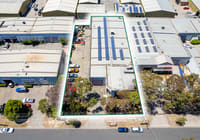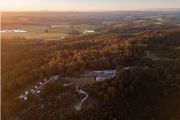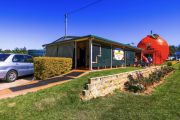
Grollo’s AGL deal points to $1b key worker housing portfolio
Melbourne-based Grollo Group has secured a 73-year sublease on the Bogong Village site near Falls Creek from AGL and plans to develop key worker housing on the site and other alpine properties into a 1500-bed portfolio over the next three to four years.
Grollo Group will refurbish the existing 27 homes – which date from the 1940s and were built to house workers on the Kiewa Hydro Electric Scheme, a network of four power stations – with the aim of having 200 beds for workers ready for the start of next year’s ski season.

The company plans to develop as many as 500 beds on the 12-hectare Bogong Village and add them – along with sites it also owns at Mount Buller and at Mount Hotham Airport – into a $175 million fund owned by institutional investors.
Director Lorenz Grollo says it has the scope to become much larger, with 10,000 beds worth a collective $1 billion.
“We’ve actually started looking at a key worker accommodation platform, which is a new asset classes in its own right, and talking to partners to see how we can scale it,” Mr Grollo told The Australian Financial Review.
“So ultimately, we can see this platform and this business scaling to 10,000 beds.”
The decision is another step in Australia’s journey to diversify its housing offerings and funding models in response to growing and changing demands. It follows innovations such as market-rate build-to-rent, social and affordable housing and purpose-built student accommodation.
Grollo Group paid $400,000 for the village sublease that in addition to housing includes a tavern and other amenities. Real estate agent John Castran acted for AGL in selling the sublease.

The public Bogong Outdoor School, offering outdoor learning programs for pupils in years P-12, will continue to be owned and operated by the state education department.
“We are thrilled that the Grollo Group will take over the operation of Bogong Village,” AGL head of hydro Simon Kelley said.
“This is a fantastic outcome for the local community and tourism in the region with plans to redevelop the village, provide key worker accommodation for Falls Creek, and open the tavern once more for visitors to the area.”
AGL will keep owning and operating the 395MW Kiewa scheme, which it acquired when privatised in 2005. In 2009, the company added the Bogong Power Station, on the edge of the village, to the existing Mackay Creek, Clover, and West Kiewa Power Stations.
Remote housing ‘perfect storm’
The demand for key worker housing as a distinct asset class – and the number of businesses wanting to secure reliable accommodation to house staff – became clear after the family-owned group bought Mount Hotham Airport for $6.5 million late last year and said it would develop housing on the site.
“The reaction out of that was amazing,” said Martin Ansell, Grollo Group property director and Mr Grollo’s brother-in-law.
“There’s this perfect storm of this issue of housing your workers in remote areas or small towns.”
The group, which owns and operates assets such as the Mount Buller Ski Lifts, hotels and retail, developed an understanding of the accommodation needs of remote and regional businesses, Mr Ansell said.
“We’re looking for 10-year leases on these things, which gives certainty to that end user of having those beds,” he said.
“You’ve got a transactable business that you can sell because you’ve got the beds to go with it as well. The [business owners] say I’m going to probably pay a little bit more, but it’s certainty, and I’m happy with that.”
The development of a portfolio of key worker homes is still subject to approval from the state government on what is Crown land, but the company plans 450 beds across three buildings it has sites for at Mount Buller, the 500 at Bogong Village and a minimum 650 at Mount Hotham.
The company already has 400 staff beds at Mount Buller. As the new accommodation was built, it would look to release some of the existing stock for other uses, such as a backpackers’ accommodation, Mr Grollo said.
The group is working on a cost of $80,000-$100,000 per-bed investment, including land, services and infrastructure. To date, the group has funded everything but is in discussions with potential capital partners including retail and industry super funds.
“This is a new asset class, that which rent can be underpinned over a period of years by operators,” Mr Grollo said.
“So we see it as being a social infrastructure play. It’s very similar to a student accommodation model or a BTR model, tailored towards worker accommodation in places of need.”
It would not be limited to regional areas, but could operate and own housing in urban areas also, he said.
“This platform could get to $1 billion quite easily because of the shortage of key worker accommodation right across Australia and New Zealand,” Mr Grollo said.
“So there’s definitely a large market out there.”











